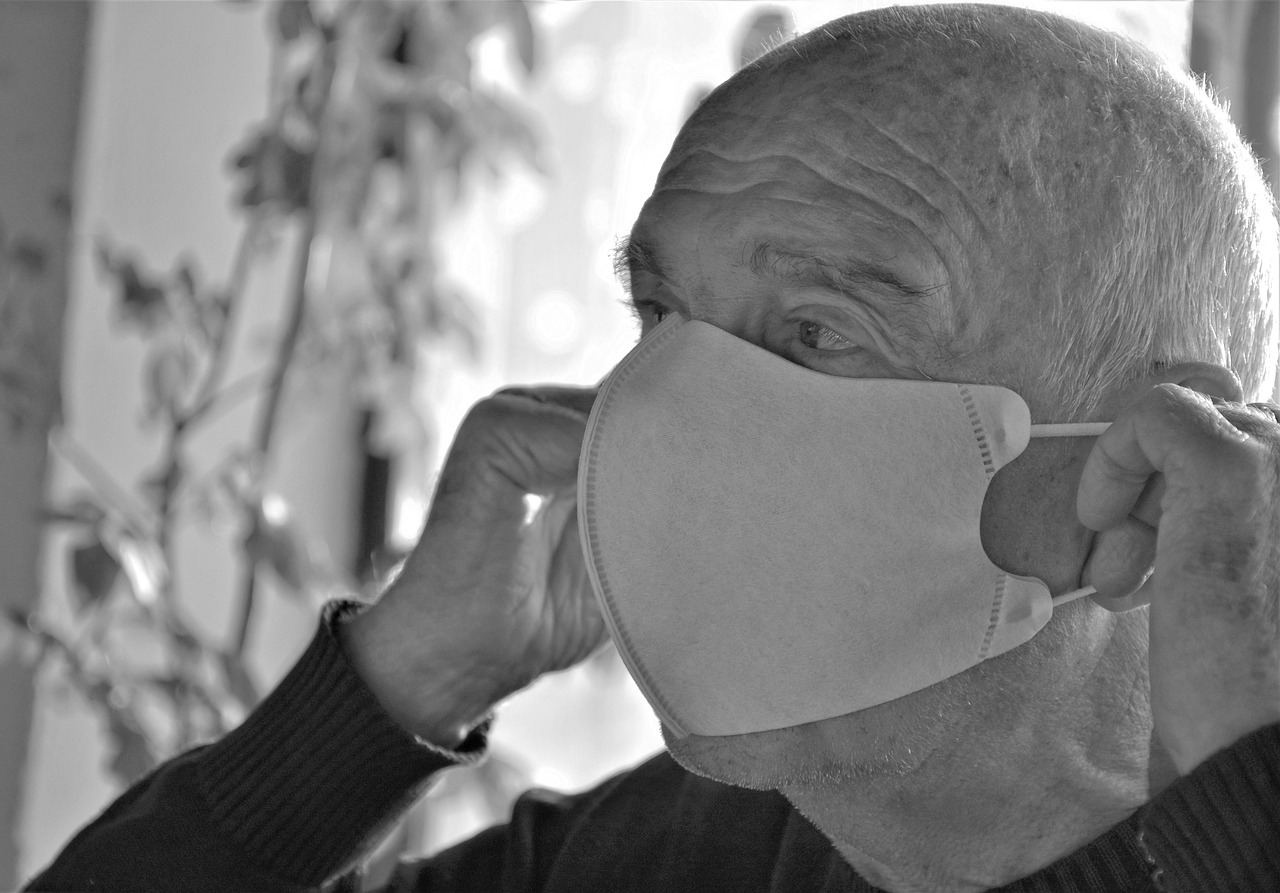
The COVID-19 pandemic is stressful for people of any age. Fear and anxiety about a new disease and what could happen can be overwhelming and cause strong emotions in adults and children. Public health actions, such as social distancing, can make people feel isolated and lonely and can increase stress and anxiety. But these actions are necessary to reduce the spread of COVID-19. Coping with stress and doing your part to stay healthy can make your community stronger.
Among adults, the risk for severe illness from COVID-19 increases with age, with older adults at highest risk. Severe illness means that the person with COVID-19 may require hospitalization, intensive care, or a ventilator to help them breathe, or they may even die.
Risk for Severe Illness Increases with Age
As you get older, your risk for severe illness from COVID-19 increases. For example, people in their 50s are at higher risk for severe illness than people in their 40s. Similarly, people in their 60s or 70s are, in general, at higher risk for severe illness than people in their 50s. The greatest risk for severe illness from COVID-19 is among those aged 85 or older.
There are also other factors that can increase your risk for severe illness, such as having underlying medical conditions. By understanding the factors that put you at an increased risk, you can make decisions about what kind of precautions to take in your daily life.
It is especially important for people at increased risk of severe illness from COVID-19, and those who live with them, to protect themselves from getting COVID-19.
Steps to reduce risk of getting sick
- Keep space between yourself and others (stay 6 feet away, which is about two arm lengths).
- Wash your hands often.
- Avoid touching your eyes, nose, and mouth with unwashed hands.
- Cover coughs and sneezes with a tissue or the inside of your elbow. Then wash your hands.
- Take precautions as you go about your daily life and attend events.
- Clean and disinfect surfaces and things you touch often.
Staying healthy during the COVID-19 pandemic.
Staying healthy during the pandemic is important. Talk to your healthcare provider about whether your vaccinations and other preventive services are up to date to help prevent you from becoming ill with other diseases.
- It is particularly important for those at increased risk of severe illness, including older adults, to receive recommended vaccinations against influenza and pneumococcal disease.
- Remember the importance of staying physically active and practicing healthy habits to cope with stress.
If you are thinking about participating in an event or gathering:
If you are at increased risk for severe illness, consider avoiding high-risk gatherings. The risk of COVID-19 spreading at events and gatherings increases as follows:
Lowest risk: Virtual-only activities, events, and gatherings.
More risk: Smaller outdoor and in-person gatherings in which individuals from different households remain spaced at least 6 feet apart, wear masks, do not share objects, and come from the same local area (e.g., community, town, city, or county).
Higher risk: Medium-sized in-person gatherings that are adapted to allow individuals to remain spaced at least 6 feet apart and with attendees coming from outside the local area.
Highest risk: Large in-person gatherings where it is difficult for individuals to remain spaced at least 6 feet apart and attendees travel from outside the local area.
If you think you may have COVID-19 or were exposed to COVID-19:
- If you have symptoms of COVID-19, get in touch with your healthcare provider within 24 hours, and follow steps for when you feel sick.
- If you or someone you know has COVID-19 emergency warning signs (trouble breathing, persistent chest pain, new confusion, inability to wake or stay awake, or bluish lips or face), seek emergency care immediately. Call 911.
- If you think you might have been exposed to someone with COVID-19, contact your healthcare provider. If you don’t have a healthcare provider, contact your nearest community health centerexternal icon or health department.
Take care of yourself and your community
Taking care of your friends and your family can be a stress reliever, but it should be balanced with care for yourself. Helping others cope with their stress, such as by providing social support, can also make your community stronger. During times of increased social distancing, people can still maintain social connections and care for their mental health. Phone calls or video chats can help you and your loved ones feel socially connected, less lonely, or isolated.
~ Excerpts courtesy of the Centers for Disease Control and Prevention
